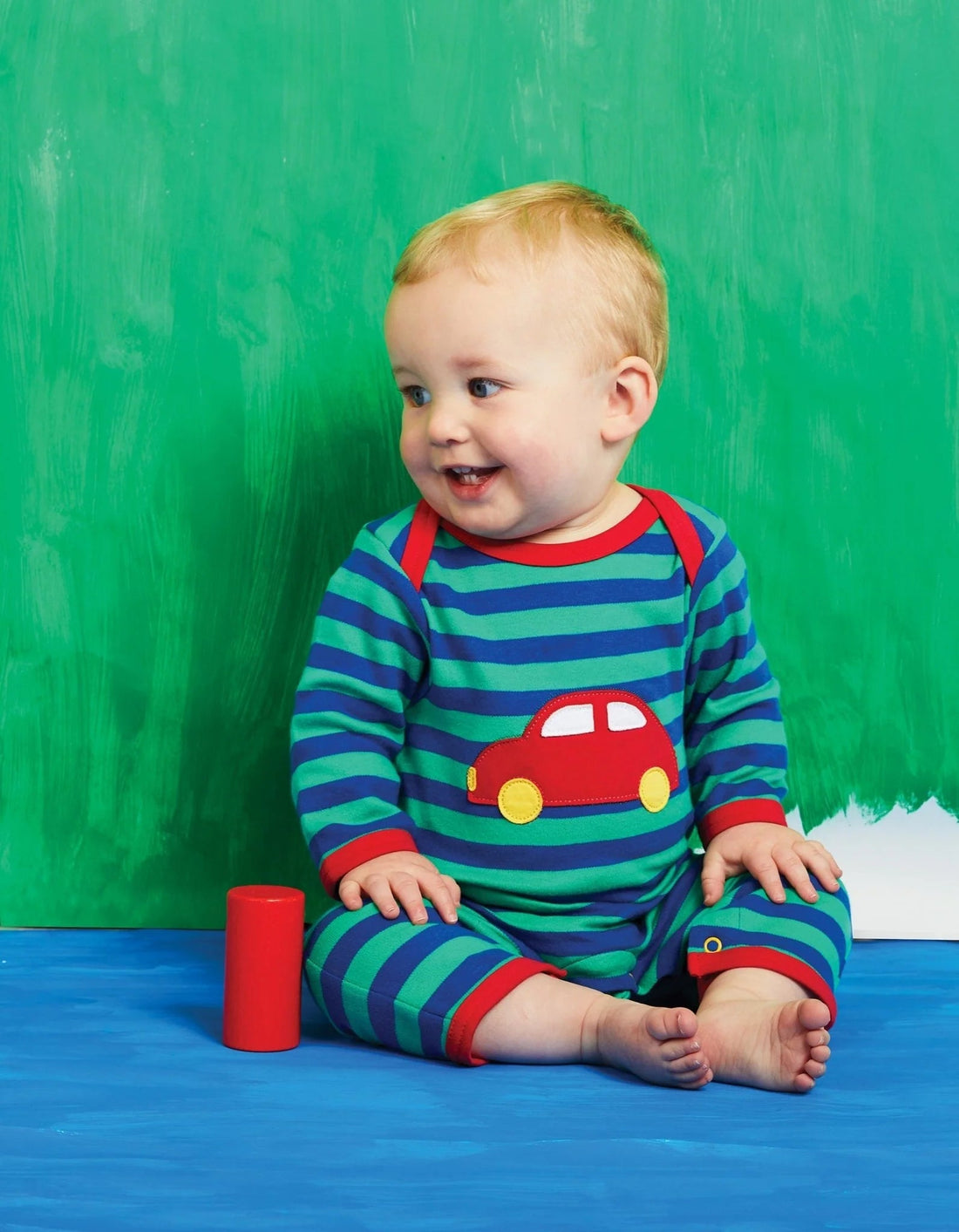
Is organic baby clothing worth it?
Share
The decision to purchase organic baby clothing depends on various factors, including personal preferences, values, and budget. Here are some considerations to help you make an informed choice: Consider the environmental impact of non-organic baby clothing and how it aligns with your values.
-
Environmental Impact: Organic baby clothing is made from materials grown without synthetic pesticides or fertilisers. Choosing organic clothing can reduce the environmental impact of conventional farming practices and promote sustainable agriculture. Additionally, organic baby clothing is often made from natural fibres such as cotton, linen, or bamboo, which are biodegradable and have a lower carbon footprint compared to synthetic materials.
- Babies have delicate and sensitive skin. Organic fabrics are often hypoallergenic and less likely to cause skin irritations or allergies compared to conventionally grown materials. Consider their delicate skin when choosing clothing for babies. Organic fabrics are recommended for their hypoallergenic properties.
-
Chemical Exposure: Conventional fabrics may contain residues from pesticides and synthetic chemicals. Organic clothing aims to reduce your baby's exposure to potentially harmful substances. It avoids conventional fabrics that may retain chemical residues.
-
Quality and Durability: Organic fabrics are typically of good quality and may be more durable than some conventional options. This can be beneficial for baby clothing that needs to withstand multiple washes and wears. In addition to their quality, organic fabrics are known for their durability. Studies have shown that organic materials can withstand multiple washes and wears without losing their shape or color.
-
Cost: Organic clothing can be more expensive than conventional clothing due to the higher costs associated with organic farming practices. Consider your budget and priorities when making a decision. Don't let the price tag scare you! We know organic clothing can be a bit pricier than the conventional stuff, but trust us, it's worth every penny. Consider your budget and priorities to make the best decision for you!
-
Certifications: Look for reputable certifications like GOTS (Global Organic Textile Standard) when purchasing organic baby clothing. These certifications ensure that the clothing meets specific organic and environmental standards. When choosing organic baby clothing, it is important to consider reputable certifications such as GOTS (Global Organic Textile Standard). These certifications guarantee that the clothing adheres to strict organic and environmental standards.
-
Availability and Style: Organic baby clothing is becoming more widely available as demand increases. You can find a variety of styles, designs, and options to suit your preferences. Organic baby clothing is made from natural materials that are better for both the environment and your baby's delicate skin.
-
Resale Value: High-quality organic clothing might retain its value better over time, which could be advantageous if you plan to resell or pass down the clothing to others. Organic clothing is known for its high resale value, making it a wise investment if you have plans to resell or hand it down to others. If you purchase Toby Tiger organic clothing then you can send it back to Superlooper and get money off your next order. For more details, visit our Return & Earn page.
Ultimately, the choice between organic and conventional baby clothing depends on your priorities and values. If promoting sustainable practices, minimising chemical exposure, and supporting organic agriculture are important to you, then organic baby clothing could be worth considering. However, if budget constraints or other factors come into play, it's important to find a balance that works for your family. Consider the environmental impact: Organic baby clothing promotes sustainable practices and supports organic agriculture, minimising chemical exposure.



